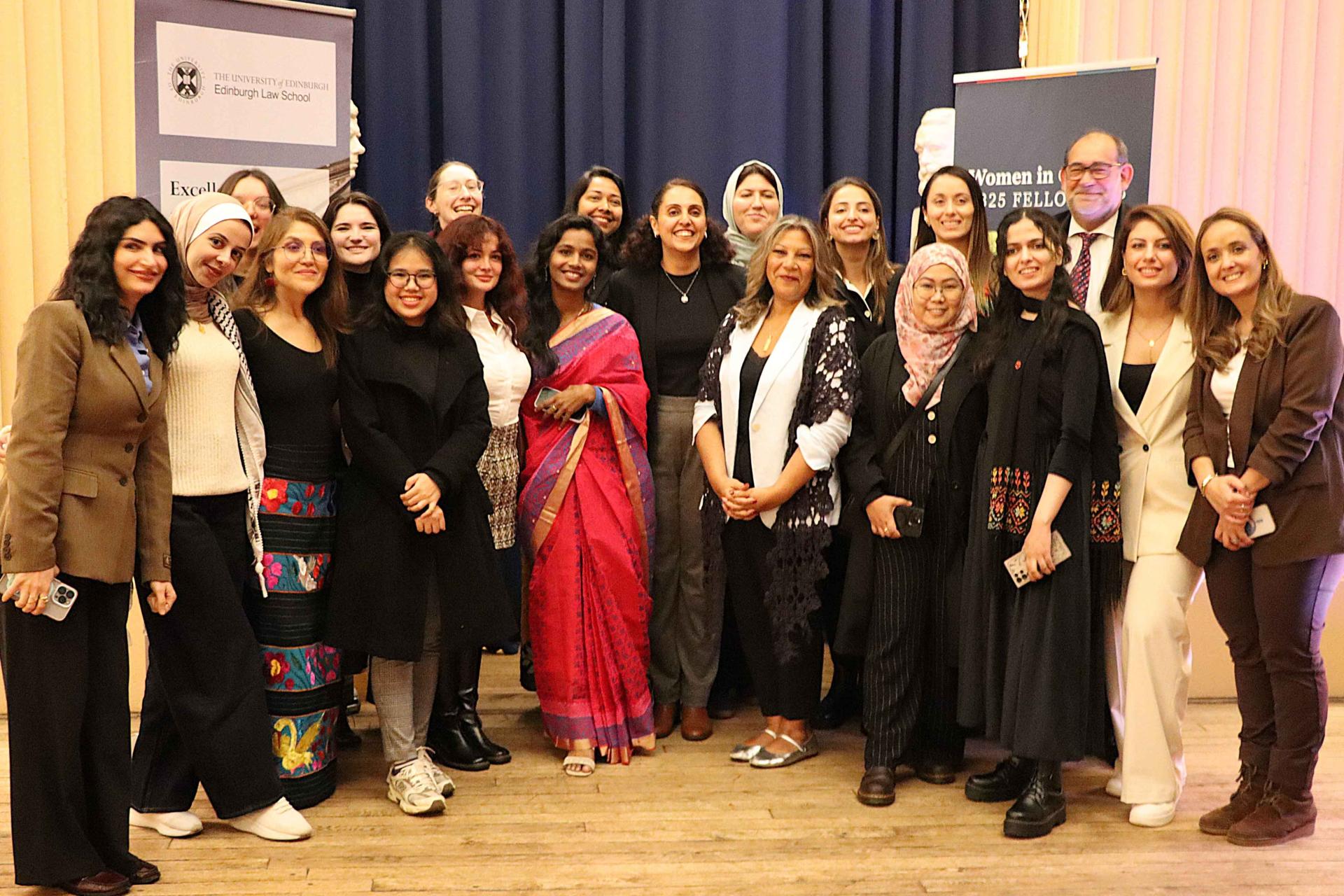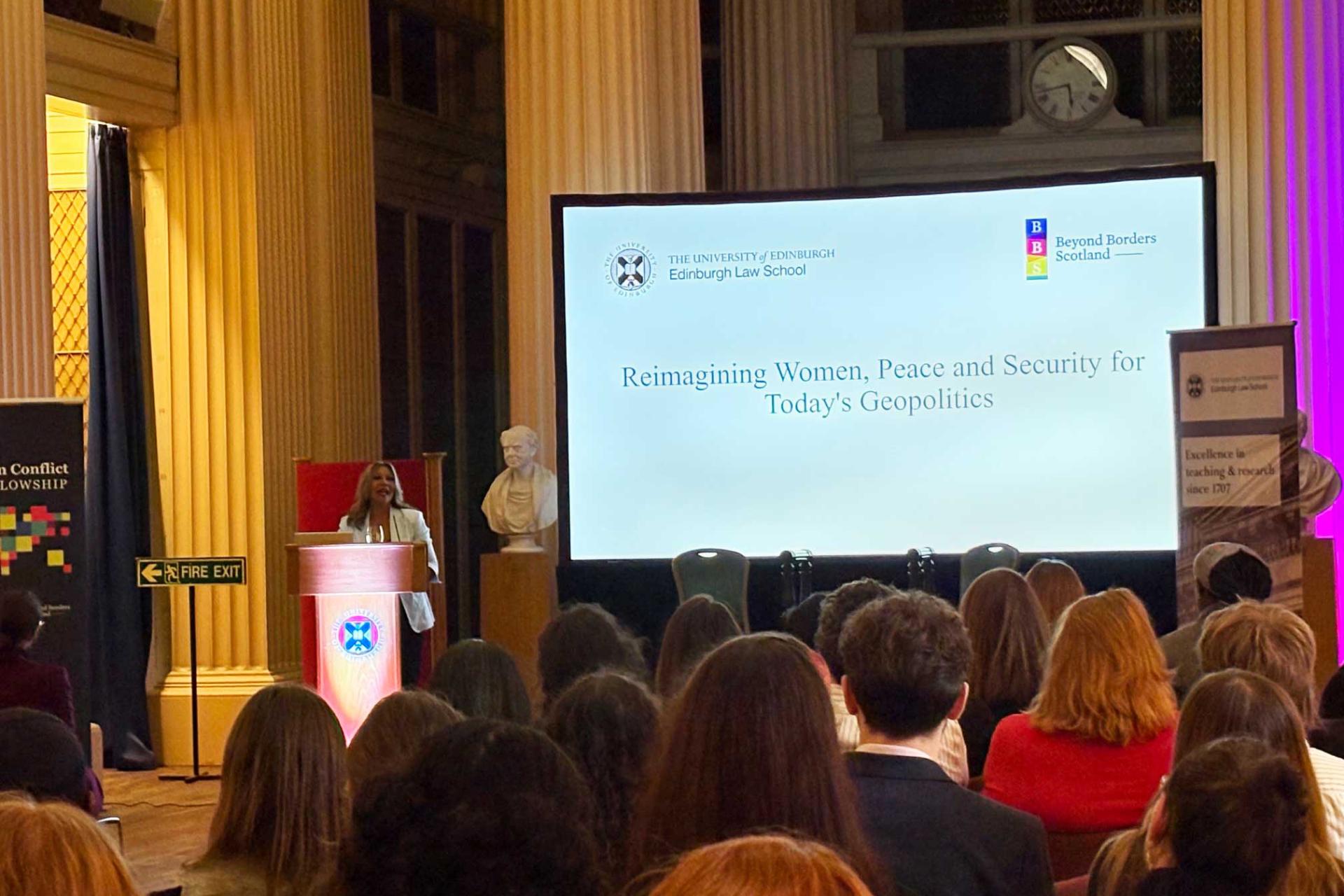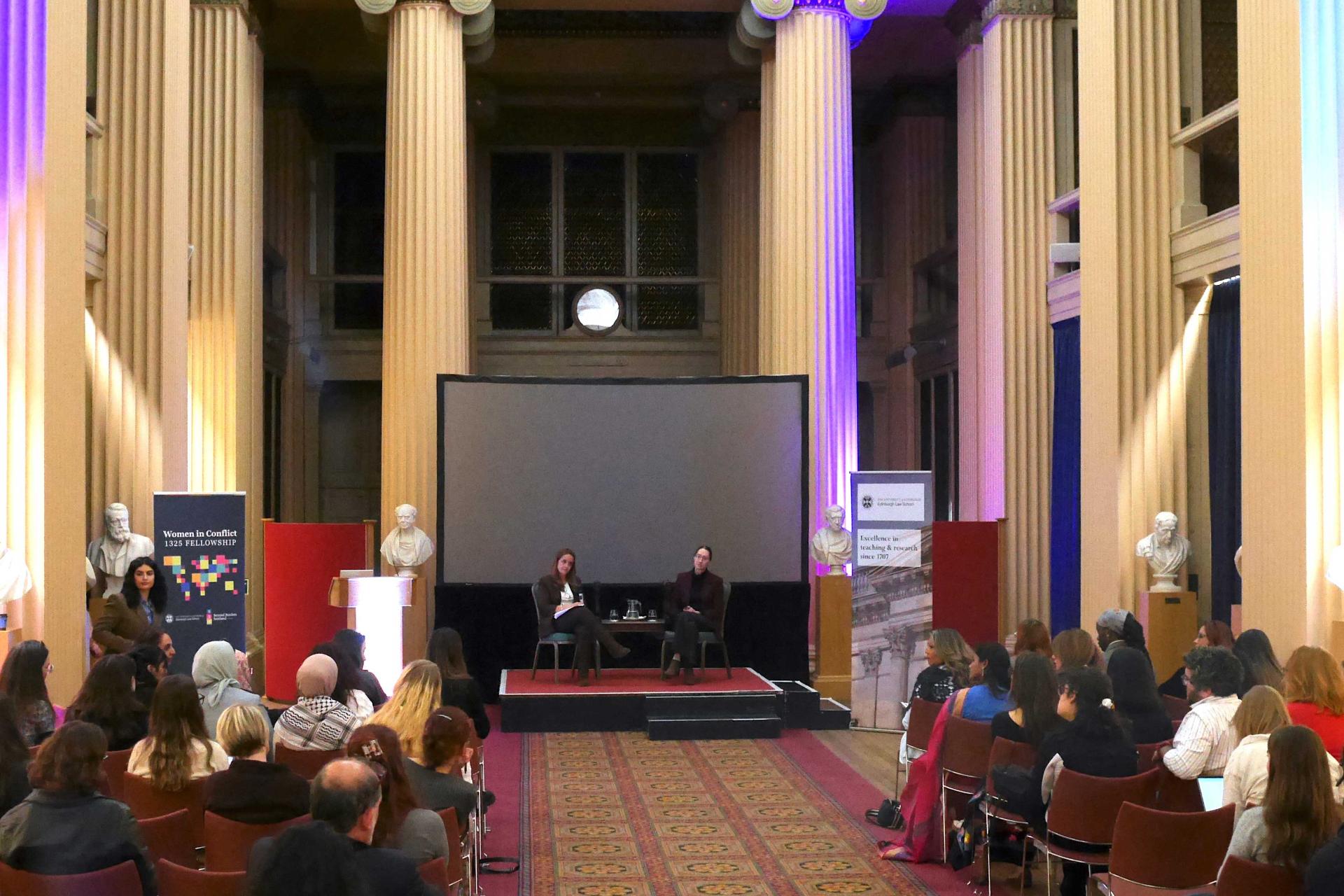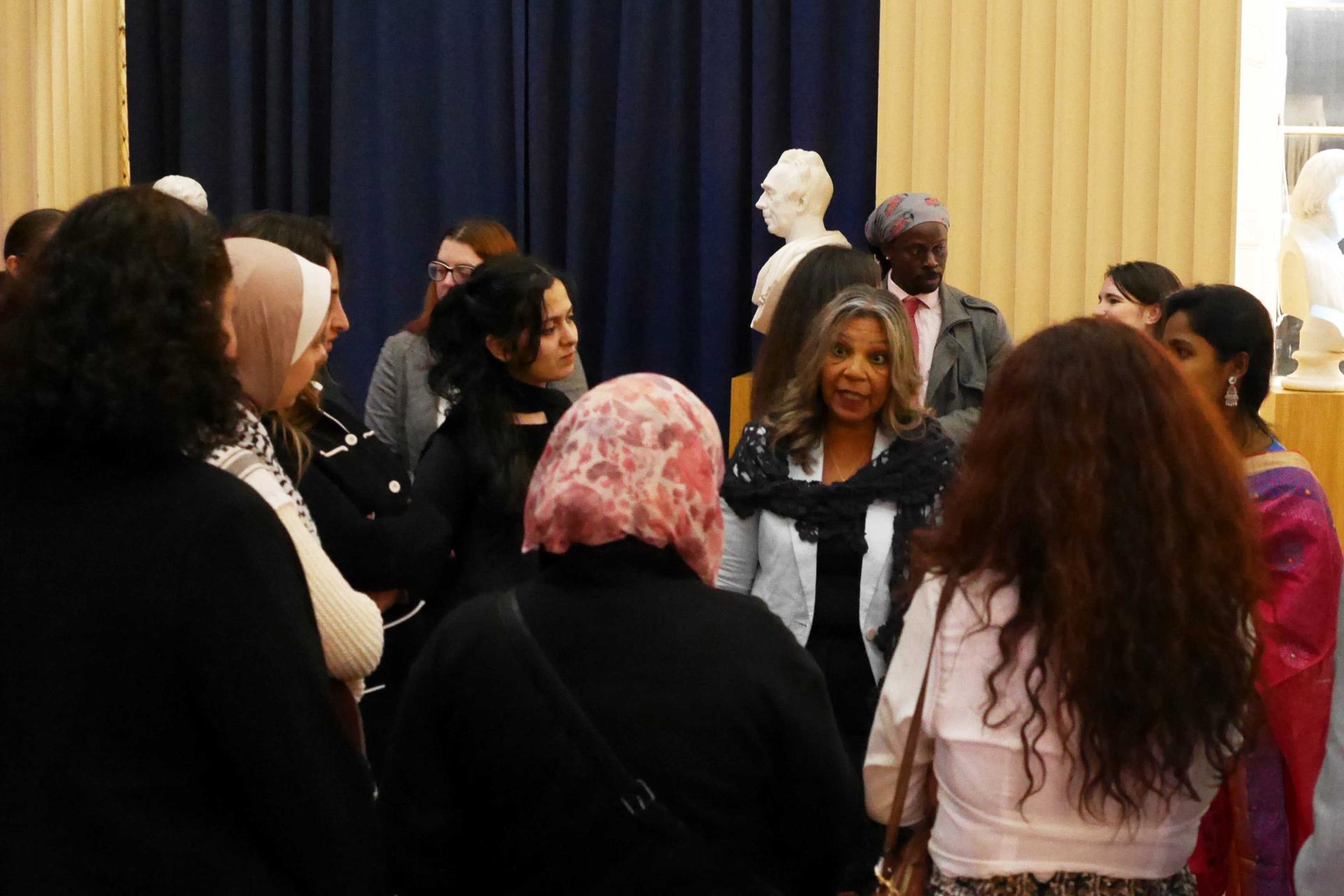25 Years of WPS: Reimagining women, peace and security
Mon 27 October 2025

To mark the 25th anniversary of the Women, Peace and Security (WPS) agenda, Edinburgh Law School and Beyond Borders Scotland co-hosted a public event on 21 October at the Playfair Library. Distinguished peacebuilder Dr Houda Abadi joined the Scottish Government’s Minister for Equalities Kaukab Stewart MSP, PeaceRep Senior Research Fellow Laura Wise, and Beyond Borders Scotland WPS Projects Manager Khulood al-Saidi to offer reflections on the way forward for WPS.
United Nations Security Council Resolution 1325 on Women, Peace and Security (WPS) was passed in October 2000, reaffirming the important role of women in the prevention and resolution of armed conflicts. Now, 25 years later, the WPS agenda is more relevant than ever as women peacebuilders face continued challenges amidst shifting global conflicts and escalating violence.
Reimagining WPS: the way forward
To mark the anniversary, Dr Houda Abadi, Founder and Director of Transformative Peace, gave a public lecture on reimagining WPS for today's geopolitics. Drawing on lessons learned from 25 years of WPS, Dr Abadi offered her own reflections and recommendations on the way forward. Her reflections from the lecture are published in this PeaceRep blog post: Reimagining Women, Peace and Security for Today’s Geopolitics.
The event also celebrated the Women in Conflict 1325 Fellowship Programme, which has trained more than 360 women peacebuilders from 40 conflict-affected countries across the Middle East, Africa, South Asia, Europe, and Latin America since 2017. Run by Beyond Borders Scotland in partnership with Edinburgh Law School and funded by the Scottish Government, the Fellowship supports women peacebuilders and the critical work they do to end and transform violent and nonviolent conflict.
Scottish Government Minister for Equalities Kaukab Stewart MSP offered welcome remarks reiterating the Scottish Government’s support for the 1325 Fellowship as part of the new Scottish Peace Programme, a groundbreaking initiative funded by the Scottish Government to connect, coordinate, and amplify Scotland’s vibrant peace sector.
Ms Stewart said: “It was a great pleasure to be able to help celebrate the 25th anniversary of the Women, Peace and Security Agenda, and to welcome this latest, inspiring cohort of fellows from the Women in Conflict 1325 fellowship programme.
“The Scottish Government is clear that both at home and around the world, women are powerful agents of peace. Our Feminist Approach to International Relations recognises that addressing systemic inequalities is essential for achieving global security, sustainable development, and inclusive governance.
“At a time when global commitment to women’s rights is under threat, where gender-based violence continues to be used as a weapon of war, where women are still systematically excluded from peace processes, and global funding for this work is being reduced, Scotland is proud to continue to support and champion the role of women in international peacebuilding efforts.
“We are very appreciative not only of the contributions of these peacebuilders but of the efforts of organisations like Beyond Borders and Edinburgh Law School in helping to bring them together.”
Laura Wise, PeaceRep Senior Research Fellow, said, “Women peacebuilders are facing more challenges than ever before, and the WPS Agenda can be an important tool to support their work. However, genuinely equal co-operation between women in conflict and partners in the Global North is essential for effective WPS interventions and should be at the core of our work. We are grateful to Dr Abadi for sharing insights from her extensive peacebuilding experience, which shows how powerful WPS can be when de-colonisation and dignity are prioritised.”
Khulood Al-Saidi, Women Peace and Security Projects Manager at Beyond Borders Scotland, emphasised the importance of the Scottish Government continuing to support the fellowship programme, especially now, when global funding for peace and gender equality projects is being cut and shrinking due to military spending.
The evening also featured the Pieces of Peace exhibition, a data physicalisation artwork that highlights the limited references to women and gender issues in formally signed international peace agreements, as documented in the PA-X Gender database. Using debossing techniques, the art makes a powerful statement about the scarcity of provisions relating to women and gender in the Afghanistan 2000s Post-Intervention process, and peace agreements more broadly. The exhibition was designed by Jenny Long, Jinrui Wang, Laura Wise, Xinhuan Shu, Tomas Vancisin, Tara Capel, and Uta Hinrichs. Read more about Pieces of Peace.
Photo credits: PeaceRep
Further Reading
Read more about the 1325 Fellowship and the Scottish Peace Platform


